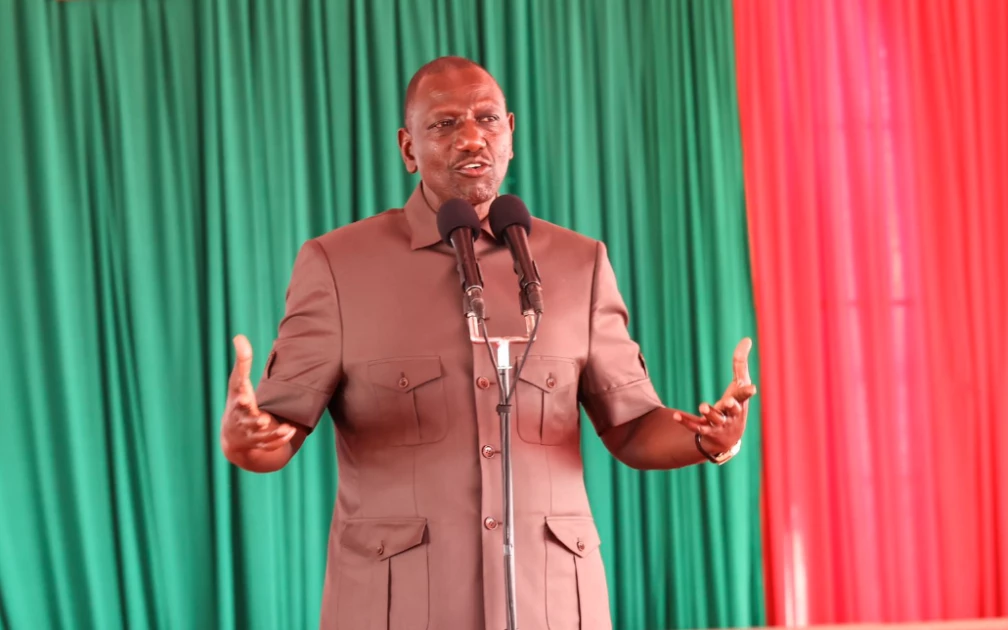President William Ruto has dismissed growing calls for his resignation, challenging opposition leaders and protesters to go beyond populist slogans and instead present concrete, workable solutions for Kenya’s pressing challenges.
Speaking on Wednesday during the bell-ringing ceremony marking the listing of the Linzi asset-backed security at the Nairobi Securities Exchange (NSE), Ruto responded directly to those chanting “Ruto must go,” saying he is open to scrutiny, but leadership change must come through the ballot and ideas, not noise.
“For sure, just like those who were there before me, I will go. But respectfully, sirs and madams, let me ask you, what are your reasons for this call?” Ruto posed, emphasizing that his term, like every leader’s, will come to an end at the right time.
He criticised the opposition for lacking substantive policy proposals and likened their rhetoric to “wash wash” scams grand promises with no credible foundation. The President said those who disagree with his administration’s direction must be ready to table alternative strategies on critical issues such as healthcare, job creation, the economy, and education.
“If your plan does better than mine on jobs, on the economy, on healthcare, on education, you should be bold enough to tell us,” he challenged.
Ruto further defended his flagship reforms in housing and health, saying critics who want to reverse the Universal Health Coverage plans and affordable housing program are clinging to outdated and dysfunctional systems.
“They want us to go back to NHIF? The old NHIF never worked. They want to return to the old university funding model? That crippled higher education,” he said. “That sounds like people who prefer the status quo, the familiar—no change.”
The President reiterated that national dialogue should be grounded in facts and vision, not slogans. “Let’s have a candid conversation about the future. If it’s about ideas, I am ready to debate. But chanting alone won’t fix the country.”
Ruto’s remarks come amid increasing discontent among youth and opposition leaders over the high cost of living, new taxes, and governance issues.

